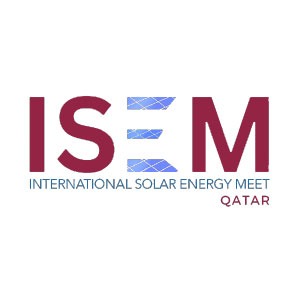- ASRY Awarded 2024 RoSPA Gold Medal in Health and Safety
- BP ponders shifting focus away from renewables, say sources
- QatarEnergy enters 10-year naphtha supply agreement with Japan’s ENEOS Corporation
- The International Energy Agency expects oil demand growth to slow in 2024
- The International Monetary Fund re-selects Kristalina Georgieva as its director
- Libya to target producing 1.4 million b/d by end 2024
- TotalEnergies launches the Marsa LNG project and deploys it multi-energy strategy in Oman
- H.E. Minister Al-Kaabi: Demand for oil and gas will continue for long; we have to be responsible, and Qatar is doing its part
- Egypt to stop exporting LNG starting from the beginning of May 2024
- QatarEnergy selects Nakilat to own and operate 25 conventional LNG vessels

11 Million People Employed in Renewable Energy in 2018

Eleven million people were employed in renewable energy worldwide in 2018 according to the latest analysis by the International Renewable Energy Agency (IRENA). This compares with 10.3 million in 2017.
The latest Renewable Energy Annual review finds that renewable jobs grew to their highest level, as more and more countries manufacture, trade and install renewable energy technologies.
“Beyond climate goals, governments are prioritising renewables as a driver of low-carbon economic growth in recognition of the numerous employment opportunities created by the transition to renewables,” said Francesco La Camera, Director-General of IRENA.
“Renewable energy sources provide all the components of sustainable development – environmental, economic and social. As the global energy transformation gains momentum, the employment opportunities reinforce the social aspect of sustainable development and provide yet another reason for countries to commit to renewables.”
Renewable energy jobs highlights:
The solar PV industry retains the top spot, with a third of the total renewable energy workforce. In 2018, PV employment expanded in India, Southeast Asia and Brazil, while decreased in China, the United States, Japan and the European Union.
The increase in biofuel production has contributed to a 6% increase in jobs, equivalent to 2.1 million jobs. Brazil, Colombia and South-East Asia have large supply chains of employment mostly informal employment, while operations in the United States and the European Union depend more on machinery.
Employment in wind power supports 1.2 million jobs. China alone accounts for 44 % of global wind employment, followed by Germany and the United States. Onshore projects predominate, but the offshore segment is gaining traction and could build on expertise and infrastructure in the offshore oil and gas sector.
Hydropower has the largest installed capacity of all renewables but now expanding slowly. The sector employs 2.1 million people directly; three quarters of them are in operations and maintenance.
IRENA is the global intergovernmental organization that supports countries in their transition to a sustainable energy future, and serves as the principal platform for international co-operation, with 160 Members (159 States and the European Union) and 23 additional countries in the accession process and actively engaged.
IRENA promotes the widespread adoption and sustainable use of all forms of renewable energy including bioenergy, geothermal, hydropower, ocean, solar and wind energy, in the pursuit of sustainable development, energy access, energy security and low-carbon economic growth and prosperity.










